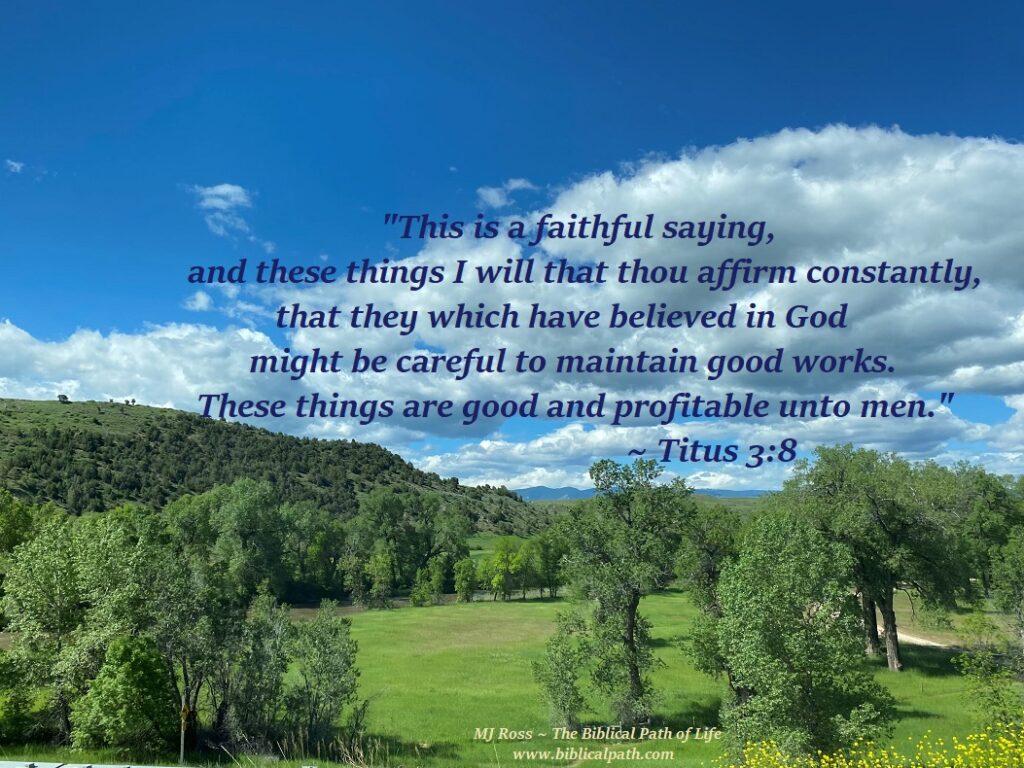
Key Verse
Wherefore in all things it behoved him to be made like unto his brethren, that he might be a merciful and faithful high priest in things pertaining to God, to make reconciliation for the sins of the people.
—Hebrews 2:17
Key Verse Thought: Read today’s Key Verse. Behoved means “to be fit and proper.” It was God’s plan that Jesus became a human being, like unto his brethren, so that He could be the appropriate offering that would appease the wrath of God: thereby making “reconciliation for the sins of the people.” That means that Jesus, by His death on the cross, caused God to be merciful toward sinful man. Moreover, because Jesus was human, He is merciful and faithful to any who would believe in Him.
Emphasis: We are to understand what Jesus did: He became a human and died on the cross for the sins of man so that He could become our faithful High Priest, taking our sins away forever. Because of that, Christians are to learn how to grow, being able to handle the meat of the Word so that we can discern good and evil.
Lesson Summary: In our last lesson, we completed the fourth division in the New Testament: Four Letters by Paul Instructing Pastors. In this lesson, we begin the final, and fifth division, in the New Testament: Nine General Letters to the Jewish Churches. Hebrews is the first book in the final division. There are differing opinions as to the author of Hebrews, but many agree that Paul wrote it. The name indicates to whom the book is primarily directed, helping us understand it better: it was written specifically to the Jews. It begins by reminding the Hebrew people that God had spoken to them in many different ways (as we learned throughout the Old Testament), but it was an assurance that God now chose to speak to them through His Son, Jesus.
First, one must remember that in the Old Testament’s religious system, a blood sacrifice was used to cover the sins of the people until a better sacrifice could be provided. Hebrews was written to help the Jews understand that Jesus’ death on the cross was the promised sacrifice, that “better sacrifice,” that they had been looking forward to all of those years. They were to believe by faith. Remembering this will help us as the writer of the book of Hebrews explains this concept to any who would receive. He compared Jesus to Melchisedec.
As we look into Hebrews, we will highlight some important things: who Jesus is, what He did, the call for anyone to understand and believe, and even the obligation as to what believers are to do with this information. We will learn the importance of growing in our Christian life, not having to constantly be reminded of the foundational truths, and to be able to handle the meat of the Word, learning to discern good from evil.
Y3Q4 – Lesson 4 Questions
Y3Q4 – Lesson 4 Children’s Worksheets
If you are teaching this to children, the following is a craft idea to help them remember this lesson:

We made a hanging frame with puzzle pieces around the verse Hebrews 4:12.
The Biblical Path of Life – Year Three, Quarter Four is available through Amazon.
















